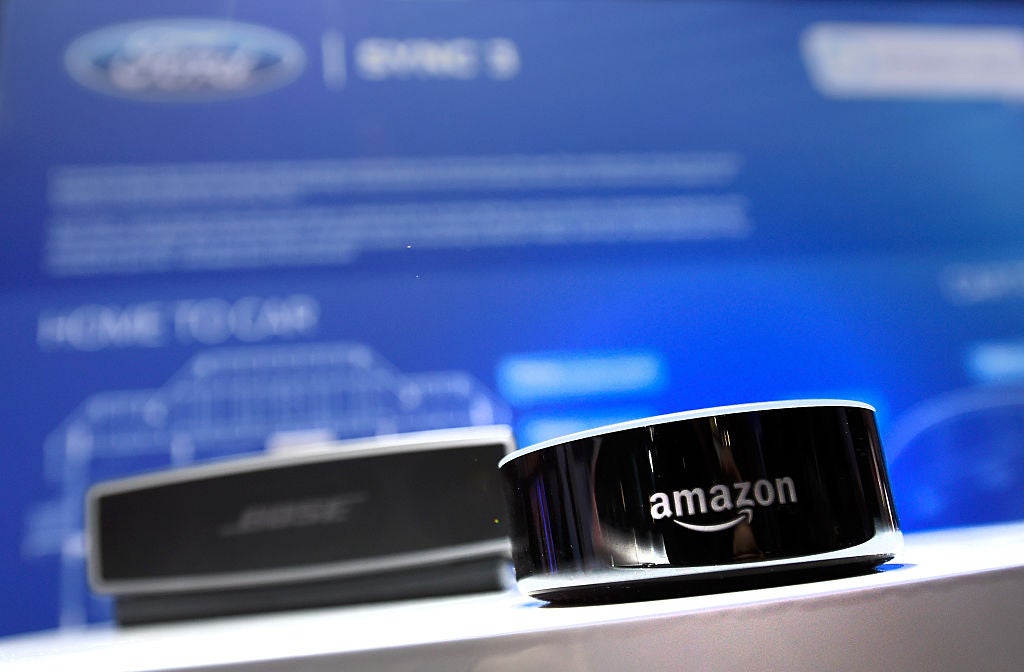Amazon’s Alexa to reward children who behave politely
When questions are asked with a ‘please’, Alexa will respond using phrases such as: ‘Thanks for asking nicely’

Your support helps us to tell the story
From reproductive rights to climate change to Big Tech, The Independent is on the ground when the story is developing. Whether it's investigating the financials of Elon Musk's pro-Trump PAC or producing our latest documentary, 'The A Word', which shines a light on the American women fighting for reproductive rights, we know how important it is to parse out the facts from the messaging.
At such a critical moment in US history, we need reporters on the ground. Your donation allows us to keep sending journalists to speak to both sides of the story.
The Independent is trusted by Americans across the entire political spectrum. And unlike many other quality news outlets, we choose not to lock Americans out of our reporting and analysis with paywalls. We believe quality journalism should be available to everyone, paid for by those who can afford it.
Your support makes all the difference.Alexa, the virtual assistant created by Amazon, has been modified so that it can offer positive feedback to children who speak politely.
The update has been announced following concerns of some parents that use of the product was encouraging children to express themselves rudely.
In January, research agency Childwise published a report that implied that use of voice-recognition gadgets was teaching children to become more demanding, with 42 per cent of children aged between nine and 16 in the UK using such devices at home.
“As there is a surge in children’s use of gadgets that respond to verbal commands we may see them learning ways of communicating that then slip into their interactions with humans,” said Simon Leggett, research director at Childwise.
“Will children become accustomed to saying and doing whatever they want to a digital assistant ‘do this, do that’ – talking as aggressively or rudely as they like without any consequences?
“Will they then start doing the same to shop assistants or teachers?”
Amazon has now introduced Amazon FreeTime on Alexa, which features a number of parental controls that adults can utilise to monitor the way their children use the smart assistant.
The Magic Word feature can be enabled to offer positive reinforcement to children when they make requests using the word “please”.
When questions are asked with these polite cues, Alexa will then respond using phrases such as: “Thanks for asking nicely.”
Furthermore, Alexa will say “No worries” or “You’re welcome” when thanked for answering a question.
Leggett believes that the update will prove extremely beneficial for the development of children.
“We had noticed that practically none of the children that we had talked to said they ever used the words ‘please’ or ‘thank you’ when talking to their devices,” he told the BBC.
“Younger children will enjoy having the added interactivity, but older children may be less likely to use it as they will be more aware it’s a robot at the other end.”
The features of Amazon FreeTime, which also include blocking explicit songs, setting bedtime time limits and educational activities, will become available for Amazon Echo, Echo Dot and Echo Plus users from 9 May in the US.
Join our commenting forum
Join thought-provoking conversations, follow other Independent readers and see their replies
Comments